A reading list for economic heretics
from Blair Fix
Do you think that the discipline of economics is a sham — an ideology masquerading as science? If so, here is a reading list for you. These 10 books have influenced my thinking over the years. Read them and join me in the journey of the economic heretic.
1. Capital as Power. A Study of Order and Creorder
Jonathan Nitzan and Shimshon Bichler
Few books offer both a compelling critique of mainstream economics and a bold alternative vision for political economy. But in Capital as Power, Jonathan Nitzan and Shimshon Bichler have the audacity to do just that.
Nitzan and Bichler point out that orthodox theories of capital are built on non-existent units. Neoclassical theory is built on the non-existent unit of ‘utility’. Marxism is build on the non-existent unit of ‘socially necessary abstract labor time’. Because they are based on non-existent quanta, Marxist and neoclassical theories of capital are incoherent.
Having boldly dismissed orthodoxies, Nitzan and Bichler build their own theory of capitalism. Their thesis, as the title Capital as Power suggests, is that capital is a commodification of power. The relative capitalization of a firm, Nitzan and Bichler argue, represents the differential power of the firm’s owners. With this bold vision in hand, Nitzan and Bichler chart a new approach for political economy, backed by ample empirical research.
Capital as Power represents everything that I look for in a paradigm-shifting work of science. It presents a compelling critique of existing orthodoxies, offers an alternative approach to political economy, and grounds this approach in innovative empirical research. Read Capital as Power and have your worldview forever changed.
2. Debunking Economics: The Naked Emperor of the Social Sciences
Steve Keen
Now almost 20 years old, Debunking Economics remains the best introduction to all that is wrong with economics. What really makes this books is Steve Keen’s style, which is both accessible and humorous. Keen revels in the awfulness that is neoclassical economics.
If you take one thing from this book, it should be that the neoclassical theory of supply and demand is hopelessly flawed. I remember taking Economics 101 as an undergrad. The professor drew the familiar supply and demand curves and pointed at the intersection. Here, the professor announced, is the equilibrium price.
At the time, the bullshit alarm sounded in my head. This explanation of prices seemed to be too simple to be true. But as a good undergrad, I swallowed my skepticism and memorized what I needed to know to pass the test.
A decade later, I began thinking about these issues again. And I was delighted to discover Keen’s critique of supply and demand. To put it simply, there is no supply curve and there is no demand curve. Keen shows how the logic used by neoclassical economics to construct these curves is hopelessly flawed. As a result, the neoclassical explanation of prices is exactly what I suspected it was as a lowly undergrad — bullshit.
Debunking Economics is, of course, much more than a critique of the neoclassical theory of prices. It’s a frontal assault on most aspects of mainstream economics. If economic theory raises your bullshit alarm, but you don’t quite know why, read this book. Steve Keen will show you why your intuition is correct.
3. History of Economic Thought: A Critical Perspective
E. K. Hunt
If you needed to design an ideology that perpetuated itself with virulence, the first thing you’d want to do is ban all (scientific) discussion of the ideology’s origin. To be virulent, the ideology must be presented as received wisdom — a gospel to be unquestioningly transmitted from one generation to another.
This is exactly how most students learn economics. They learn the gospel, but not its sordid history. Ask an economics graduate student if they’ve ever taken a course on the history of economic thought. The answer will likely be “no”.
With masterful scope, E.K. Hunt fights against this enforced ignorance. History of Economic Thought critically discusses the origins of most aspects of modern economic theory.
What I found fascinating about this book is the blatant ideological agenda of the early political economists. These thinkers had little interest in science. Instead, they were mostly interested in using armchair philosophy to justify their favored politics.
The coup d’état of neoclassical economics is that it managed to transform blatant political ideologies into seemingly objective scientific theories. Reading History of Economic Thought will remind you that economics has always been about ideology.
4. Debt: The First 5,000 Years
David Graeber
If you surveyed anthropologists and asked them their opinion of economics, most would probably tell you that they’re skeptical. But because of disciplinary boundaries, most anthropologists don’t write about this skepticism. David Graeber is the exception, and we’re lucky for it.
Debt: The First 5,000 Years is a book that only an anthropologist could write. It’s an ambitious foray into the deep history of credit and debt that draws on the study of archaeology, written history, and the observation of traditional societies.
Graeber begins by demolishing the fable of the ‘barter economy’. This is the story told by mainstream economists about the origin of money. First there was barter, economists say — the direct exchange of goods. Money was then invented as a lubricant for this barter. First came coins, then came ‘virtual’ money. Graeber argues that actual human history shows the reverse trend. Money started out as an IOU — a quantified obligation.
What separates Graeber’s work from other histories of money is his willingness to connect credit and debt to systems of power. Graeber acknowledges that the creditor-debtor relation is all about power. And he shows how this has changed through human history.
With the rise of Modern Monetary Theory, the theorization of credit and debt has become a sexy topic. After reading Debt: The First 5,000 Years, you’ll realize that there’s nothing modern about Modern Monetary Theory. More accurately, MMT has rediscovered that money is nothing but a quantified obligation that can be created and destroyed at will.
5. Energy and the Wealth of Nations:
Understanding the Biophysical Economy
Charles Hall and Kent Klitgaard
In a 1974 speech given to the American Economics Association, the economist Robert Solow remarked “The world can, in effect, get along without natural resources”. Since then, Solow’s comment has become synonous with the obliviousness of neoclassical economics to the natural environment.
As an ecologist by training, Charles Hall has spent most of his career trying to rectify this neglect. Energy and the Wealth of Nations is Hall’s magnum opus, written together with heterodox economist Kent Klitgaard.
The book puts energy front and center in the study of the economy. If you’re a social scientist with no training in the natural sciences, this book should be essential reading. It’s designed as a textbook, so it comes with plenty of examples and diagrams.
As we move into an energy-scarce future, understanding the biophysical economy will only become more important.
6. Capital in the Twenty-First Century
Thomas Piketty
For most of the 20th century, economists paid little attention to income distribution, preferring instead to focus on economic growth. By with income inequality skyrocketing in many countries, it’s becoming harder for economists to ignore income distribution.
Few economists have contributed more to the study of income inequality that Thomas Piketty. Because of this, I recommend reading Capital in the Twenty-First Century. It’s a masterpiece of empirical research.
Since Capital was published, it’s become somewhat of a cottage industry for heterodox economists to critique Piketty. True, his central thesis about the cause of inequality is cringe worthy. He proposes that when the rate of economic growth is less than the rate of return on capital, income inequality will increase. I don’t buy this for a second.
Still, I have enormous respect for Piketty because he actually went out and measured inequality in a novel way (using tax records). Read Capital in the Twenty-First Century not for its theory, but for its data.
7. How the Other Half Dies: The Real Reasons for World Hunger
Susan George
When I was first becoming interested in economics, I would browse the University of Toronto library for books that looked interesting. I’d read the book, and then read the bibliography, noting references that looked interesting. I’ve long since forgotten the book in whose bibliography I discovered How the Other Half Dies. But Susan George’s polemic has stayed with me.
Although George doesn’t frame it this way, her book is about the political economy of food distribution. Her thesis is simple: no famine in modern history has been caused by a global food shortage. Famine is not a problem of too little food production (or over population). Famine is a problem of distribution. People who starve do so because they are poor. There may be food in the world that could feed them. But the starving lack the money to buy this food.
Even if you’re familiar with the political economy of global food distribution, the urgency and moral outrage of George’s writing is worth the read.
8. This View of Life: Completing the Darwinian Revolution
David Sloan Wilson
David Sloan Wilson is an evolutionary biologist who has spent his career studying the evolution of sociality — the propensity to cooperate in groups. Together with E.O Wilson (no relation), David Sloan Wilson has been a primary proponent of ‘group selection’, which proposes that sociality evolves by selection between groups, rather than selection between individuals. As the two Wilsons put it: “Selfishness beats altruism within groups. Altruistic groups beat selfish groups”.
In This View of Life, Wilson argues that group selection has made the small group the natural unit of human organization. In light of this fact, Wilson notes, most economic theory makes little sense.
Economists base their theories on the idea that humans are selfish utility maximizers. Sociality never enters the equation. Wilson cogently argues that if we want to design institutions that function effectively and equitably, we need to understand our evolutionary heritage. This means acknowledging human sociality and abandoning much of economic theory.
9. When Corporations Rule the World
David Korten
When Corporations Rule the World has a special place in my heart because reading it was part of my political awakening.
I was in high school when the infamous Battle in Seattle took place — the protests that shut down a World Trade Organization meeting. I remember seeing these protests on the news and having no idea what they were about. As usual, the corporate media framed it as a bunch of radicals who were up to no good. And I more or less bought this framing.
Only when I read Korten’s book (a decade later) did I understand the other side of the story. Korton made me realize that the World Trade Organization (and other organizations such as the IMF) exist to promote a corporate agenda based on free-market ideology.
If you want to understand what neoliberalism is about, read When Corporations Rule the World. Korten’s outrage at the corporate take over of the world is palpable throughout the book. You can’t help but feel enraged when you read it.
10. The Shock Doctrine
Naomi Klein
In the 1970s, the University of Chicago trained a group of Latin American economists who became known as the ‘Chicago Boys’. Having been indoctrinated as free market fundamentalists (after studying with Milton Friedman and his ilk), the Chicago Boys returned to Latin American to spread the gospel. The results were disastrous. Think Pinochet and all the horror that came with his take over of Chile.
The Chicago boys preached that the best way to pursue free-market reforms was through ‘shock therapy’ — a dramatic change in policy that would ‘shock’ society into a free-market utopia.
In The Shock Doctrine, Naomi Klein documents the rise and spread of this practice. Although she’s writing about economic policy — which can be dry and abstract — she makes the subject lively and engaging. The story is always told through the lens of individual participants, which brings economic policy down to the human level.
Since disaster capitalism is more prominent than ever, The Shock Doctrine remains relevant a decade after it was first published.

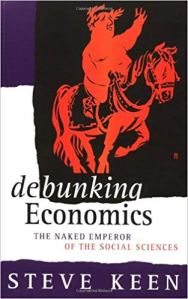
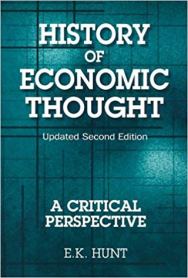
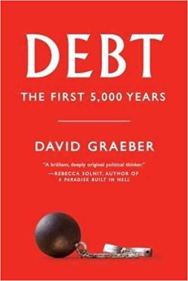

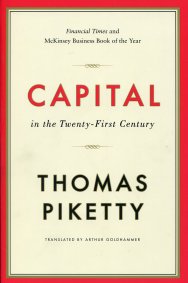
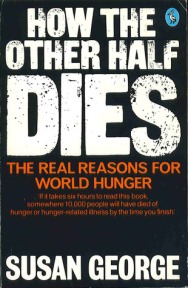
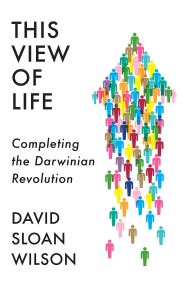
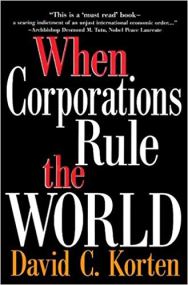

























They have indeed influenced mine too, for decades. There are loads of other books and critical contributions one could add to the list above. And I am not talking about plenty of others that have not had a chance to be translated into English and given the state of the global economy and situation, never will. It is indeed past being a total sham and utterly bankrupt as a science. It has neither sound contextual analyses, nor specific explanations for anything, even for its own dismal self having had such an unexplainably long life. We need to move on towards a new agenda that starts dealing with the real issues that stare us in the face every day, GLOBALLY.
When you are an intuitive thinker who just recognises bull-shit when he sees it, it is great to find a writer who can say in words precisely what you merely point to:
“What I found fascinating [in Hunt’s History of Economic Thought] is the blatant ideological agenda of the early political economists. These thinkers had little interest in science. Instead, they were mostly interested in using armchair philosophy to justify their favored politics”.
Helen, you keep saying “We need to move on towards a new agenda that starts dealing with the real issues that stare us in the face every day, GLOBALLY.” Please try to see that what in this blog I am having to say, i.e. point to, is precisely that.
We can see the issues, but the solutions don’t yet exist, and you mustn’t expect the medicine to look like the illness. On this analogy, we need to recognise which illnesses result from germs before one can develop effective medicine. That is the level at which Blair Fix’s MMT is pitched, and my Complex Truth is about the network within which his credit circulates, interpreted as a control system, in which junctions create potential for parasitic and mis-directed flows. With that in mind, try to see the point of
https://rwer.wordpress.com/2019/11/24/economics-enslaved-by-the-wrong-theory/#comment-161348 .
I have benefited greatly from most of the books on this list, and I agree with Fix on the importance. The first book, “Capital as Power” is a fairly recent read, but essential, although I dislike such made-up jargon as “creorder”. Their focus on power is a refreshing change from mountains of material on capitalism, economics and politics. I prefer the term “power of capital” to the ideological expression “capitalism”, as it gets to the essence of what drives and frames our economy.
I read Korten’s book when it was published and found it essentially informative. Korten’s career path was similar to one I might have taken had not my bullshit meter taken over and driven me from the field. I greatly admire him and what he as done since that book, among other things publishing the essential “Yes! Magazine”, which relates deeply to paradigm shift.
Klein’s is essential reading for any citizen. So is her book on climate justice, “This Changes Everything”.
I was trained in economics at a prestigious university in the 60s. Like Fix, my bullshit meter went on alert, but I didn’t trust my intuitions then, and I went on to grad school, where the bullshit was even thicker. I was told in no uncertain terms that mathematical models were the career wave of the future; that income and wealth distribution were the concern of sociologists, not ours; that Marx was required reading only because a large part of the world was affected; that agribusiness and not farm worker justice should be our study focus; and that such as the Institutional Economics of Veblen was “passe”. Unlike Fix’s experience, the History of Economic Thought was required of undergrads in my time. According to my own recent research, it is barely offered anywhere. I cannot understand a profession that trains its future professionals without a required understanding of its own history. I am not familiar with Hunt’s book, but shall read it soon with interest.
I would add two other authors to this list: Jamie Galbraith (in “End of Normal”, I think it is, he so artfully slices and dices his profession’s orthodoxy that the casual reader might not notice what he did) and Michael Hudson (take your pick: “Finance as Warfare” is a good one; so is “J is for Junk Economics”).
Here are some readings by Mortimer Adler and others.
The economic logic of the Just Third Way is expressed by the theory of binary economics first articulated by Louis Kelso, and the three principles of economic justice that Kelso and philosopher Mortimer Adler defined in their first book, The Capitalist Manifesto.
Binary economics, a justice-based free market theory, recognizes the changing relationship between “labor” (human input) and “capital” (non-human input) in economic growth and the production and distribution of goods and services. This change has been accelerating as advanced technology displaces human labor in many sectors of the economy.
Binary economic theory builds upon “four pillars of a just market economy”:
– Limited economic power of the state, whose duty is to police abuses, enforce contracts, prevent monopolies, and lift barriers to full participation;
– Restoration of the full rights of private property;
– Free and open markets for determining just prices, just wages, and just profits; and
– Universal access to the means of acquiring capital ownership (the moral omission in all conventional schools of economics).
Recommended Readings on Binary Economics
Binary economics offers a holistic and integrated framework for economic analysis, diagnosis and prescription that provides a moral basis and practical solutions to systemic problems that have not been addressed effectively by any of the mainstream and heterodox schools of economics.
For an accurate understanding of Binary Economics, the reader should explore the seminal writings of Louis O. Kelso, who first conceived of the idea. Foremost among these are the two books co-authored in 1958 by Louis Kelso and Mortimer Adler (The Capitalist Manifesto and The New Capitalists), and later, Two-Factor Theory: The Economics of Reality, co-authored by Louis Kelso and Patricia Hetter.
A textbook by Robert H.A. Ashford and Rodney Shakespeare, entitled Binary Economics: The New Paradigm, provides the most in-depth, scholarly examination of the subject to date. (See CESJ President Norman Kurland’s review of Binary Economics: The New Paradigm.)
The following selected writings are available through the CESJ website:
“Q and A’s on Binary Economics” by Richard Stutsman (revised by CESJ, 2014). An excellent source of basic information on Binary Economics — the socio-economic theory and market-based, expanded ownership model underlying the Just Third Way.
“Ten Controversial Questions,” by Prof. Robert H.A. Ashford, raises questions that other schools of economics have failed to explain adequately or solve without violating free market principles on the one hand, and/or principles of economic and social justice on the other.
“Binary Economics in a Nutshell,” by Norman G. Kurland, provides a brief explanation of binary economics and the principles that can help to start solving systemic problems such as poverty, boom-and-bust cycles, and the worsening concentration of wealth and income.
“The Binary Economics of Louis Kelso: A Democratic Private Property System for Growth and Justice,” by Prof. Robert H.A. Ashford, gives a scholarly examination of binary economics.
ABSTRACT >> | FULL ARTICLE (pdf) >>
“A New Look at Prices and Money: The Kelsonian Binary Model for Achieving Rapid Growth Without Inflation,” by Norman G. Kurland, presents the macro-economic logic of binary economics, and how it can restore balance in the economy between supply and demand so that Say’s Law of Markets would operate.
ABSTRACT >> | FULL ARTICLE (pdf) >>
Links to the readings are at https://www.cesj.org/learn/
I think that Egmont Kakarot-Handtke’s comments on the blog, “Starting again, and relating the schools” on 27 Nov, is just as appropriate here.
Thanks for this. Lists like this are always reminding me of how much I don’t know, haven’t read. Only two of the eight read, and just five of the authors known to me.
I think you’ll be hearing from feminist economists soon too.
I say that because a NYTimes article on Mariana Mazzucato sent me down the line from Nicola Sturgeion to Alisa McKay and Diana Strassman, to name just a couple of the branches.
So much to catch up on. Still, this lagging indicator thinks that MMT, flaws and all, offers the best chance to initiate the most ideas from the huge roll of dissenting economists. Although some of its practioners try to enlist Libertarians as being able to fit within the theory, it seems to me that MMT in the sum of its greatest parts, leans towards a more democratic economy and with it a more powerful state to fill in for the shortcomings of Neoliberalism since the Merger and Acquistion, Shareholder Value and de-regulatory mania of the past 30-40 years. And the lagging investment in the West.
Good luck to us all.